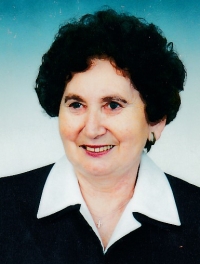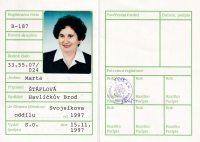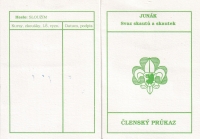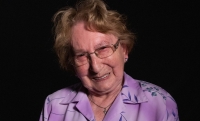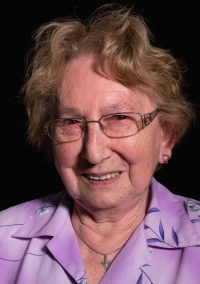Scouting has given us a lot in life

Download image
Marta Štáflová was born on May 7, 1933, in Havlíčkův Brod (then Německý Brod) to a family of a painter and calligrapher. In 1945, she became involved in the activities of the local Scout Group as a member and later its leader. In the scouting environment, she also met her future husband, chemist Evžen Štáfl, who was briefly imprisoned during the Nazi occupation because of his scouting activities. They got married in 1952, during the time when Scouting was banned. The State Security monitored her husband because of his activities, he was once interrogated. Marta Štáflová studied calligraphy and worked as an arranger, clerk and in other professions. In 1968, she became the head of the Scout Group Lišky in Havlíčkův Brod again. After 1970, acting in Vladimír Krátký’s puppet theatre served as a substitute for Scouting for the Štáfls. In 1990, she participated in the resumption of the activities of the Junák group in Havlíčkův Brod as secretary and educational reporter of the district council and leader of the Old Scouts section. Her husband died in 2011, Marta Štáflová continued his archival work by recording the history of Scouting in Havlíčkův Brod in the years 1945–1950 and 1968–1970.
